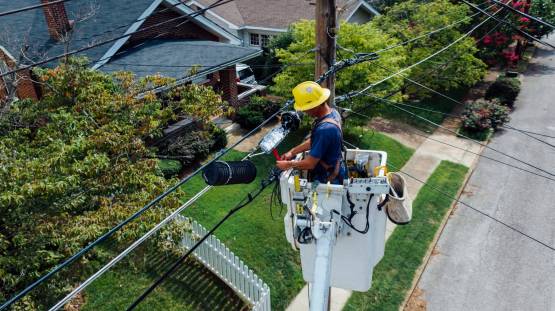Contents
Utilities Services - Industry Background
The Utilities Services sector has remained more or less unchanged over the past century. However, the industry has been facing some disruptive changes in the business model for the past few decades. The changes can be seen particularly in the areas of consumer expectations, regulatory, compliance, smart meters, distributed power resources, renewable energy, and energy storage, to name a few.

Fascinatingly, the Utility Services industry that was monopolized by select conventional businesses is giving way to a newer set of organizations. These technology-enabled, sophisticated setups that understand the business equation have shifted the focus substantially in favor of the consumer.
Moreover, add to that mix the retiring workforce and lack of availability of a skilled workforce, and you get broken business models, something that is more or less today’s reality when looking at utility companies.

Utilities Services HR Challenges
As a consequence of all of these disruptive forces, the workforce demographics in the utility sector are undergoing a massive transformation. Following are some of the challenges faced by today’s utility companies:
- Mounting the retirement rate across all positions and skillsets. According to several polls, there could be an estimated 30-40 percent of the entire industry’s workforce that will be eligible for retirement in a few decades.
- Recruitment challenges form a lack of interest in the energy and utility industry among new graduates.
- The Utility Services sector is also not able to bring in the broader workforce into joining them. And the disruption in the business, results in a more extended training period before the workers are ready for productive work.
- The broad division between the ages of employees and changing worker expectations.
- Inadequate educational infrastructure to support business demands, and narrow focus on workforce planning.
Effective HR Strategies To Address The Challenges
Traditionally, Utility Services companies have frequently addressed these challenges through stopgap measures like hiring contractors and outsourcing for critical abilities.
However, to tackle the challenges, they require some concrete measures keeping in mind the brief and long-term perspectives.
These new challenges can and must be dealt with by Utilities Services firms from a company-wide perspective as opposed to being seen as mere talent-related issues. The goal must be to come out with strategic planning that is sustainable for the future.

Following are some of the areas which utilities should concentrate on:
- Utility firms can redefine their business from traditional hierarchical structure to a more modern flatter structure. This will help them accommodate generational differences, such as management and learning styles.
- As recruiting existing or new talent from the industry gets difficult, companies should examine their current workforce and try to re-train them in modern technology. A focused and critical investment in training will help bridge some of the skill gaps.
- Utilities, like any other industry, also need to concentrate on their core competency and try to search for opportunities to outsource tasks that are non-core and may be accomplished by external organizations.
- Utilities can attract, retain, train, and develop their talent with strategic HR practices such as digitization, design thinking, mobile-first, analytics, etc.
- In the end, the organizations that can deal with massive cultural changes through definitive change management applications throughout the organization will survive and thrive.

